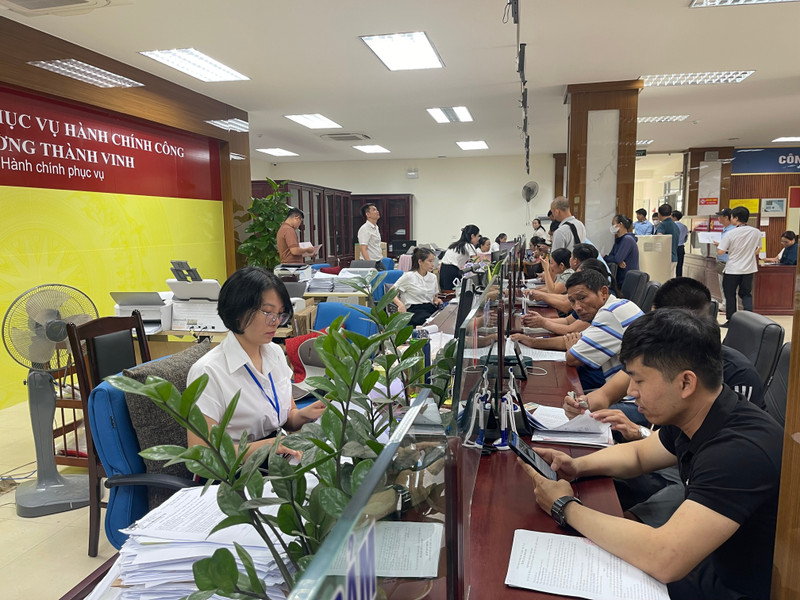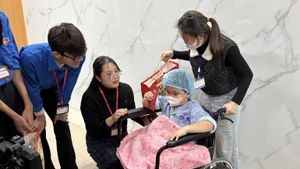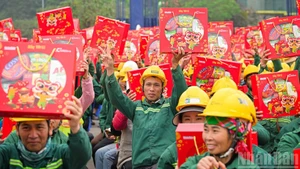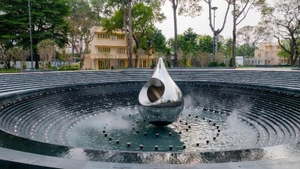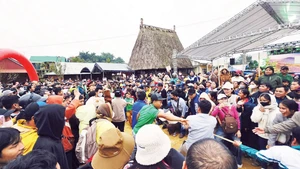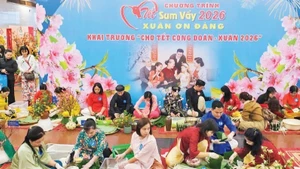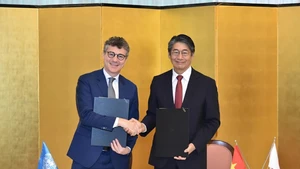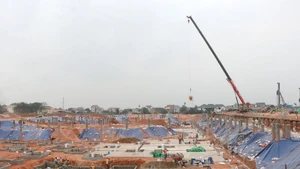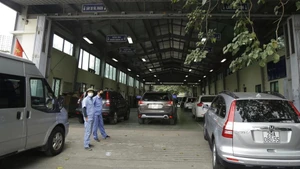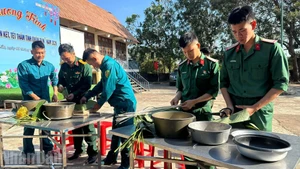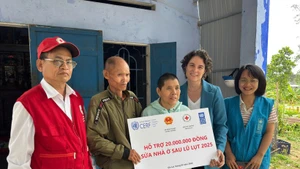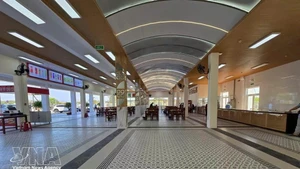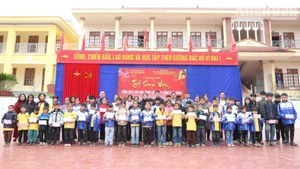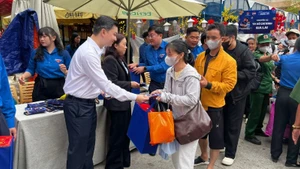The reorganisation and streamlining of administrative units and the establishment of a two-tier local government system is not merely an organisational adjustment but a strategic restructuring step in building a modern state, aligned with the inevitable trends of development, innovation, and integration.
As part of this restructuring, Nghe An reduced the number of its administrative units from 412 to 130. Thanks to meticulous planning and collective effort, the new administrative bodies officially commenced operations on July 1.
Enhancing public service delivery
Thanh Vinh Ward was established through the merger of five former wards and one commune from Vinh City — Quang Trung, Le Loi, Cua Nam, Dong Vinh, Hung Binh, and Hung Chinh.
With a population of over 123,500, the newly established ward has a high demand for administrative services. On July 1, the public administration service centre received 184 applications, with 82 processed and returned on the same day.
As part of this restructuring, Nghe An reduced the number of its administrative units from 412 to 130.
Nguyen Van Linh, Deputy Director of the Thanh Vinh Ward Public Administration Service Centre, noted that alongside in-person services, staff support residents and businesses in submitting online applications, ensuring prompt processing.
“In addition to robust IT infrastructure and interlinked databases, staff are encouraged to uphold a spirit of responsibility, unity, and wholehearted service to the people. Agencies must also coordinate seamlessly to ensure operational efficiency,” Linh stated.
In Nhon Mai Commune — formed by merging the Nhon Mai and Mai Son communes, predominantly inhabited by Thai, Mong, and Kho Mu ethnic communities — local authorities have prioritised clear communication ahead of the launch.
Le Hong Thai, Chairman of Nhon Mai Commune People’s Committee, shared that nearly 40 applications were received on the first day of operating the two-tier local government system on July 1. The commune had earlier informed residents of new headquarters and service points via local radio, village leaders, and social media platforms.
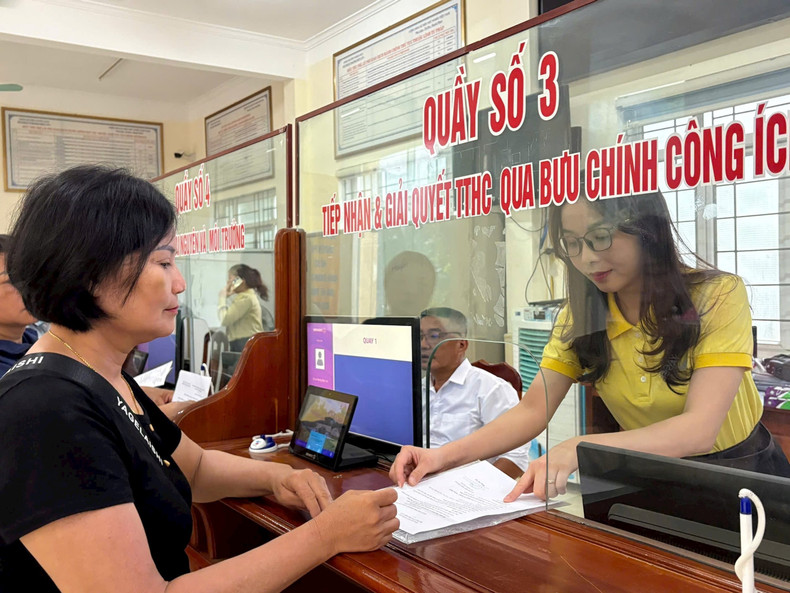
Responsive governance at the grassroots level
Van An Commune was created by merging Nam Dan Town with the communes of Xuan Hoa and Thuong Tan Loc. On July 1, its public administration service centre received 58 applications and returned 36 results the same day.
Vuong Hong Thai, Chairman of Van An Commune People’s Committee, stated that immediately after launching the two-tier local government, the commune’s authorities have directly assigned specific tasks to each office and staff, while reviewing IT infrastructure at the public administration service centre to ensure service continuity.
In the mountainous commune of Tuong Duong, Party Secretary Le Van Luong described the merging of administrative units and implementation of the two-tier local government model as “a strategic move, a revolution in administrative thinking.”
The merging of administrative units and implementation of the two-tier local government model is a strategic move, a revolution in administrative thinking.
At the June meeting of the Nghe An Provincial People’s Committee, Chairman Le Hong Vinh urged departments and agencies to step up supervision and resolve arising issues swiftly.
He highlighted the need to adhere to government regulations, especially the 28 decentralisation decrees, to define the authority between central and local bodies more clearly.
Nguyen Duc Trung, Secretary of the Provincial Party Committee, stressed the urgency of restructuring development spaces, upgrading planning frameworks, investing in infrastructure, and promoting smart industrial and agricultural development alongside responsible urbanisation.
He called for accelerated digital transformation, the application of science and technology in governance, and enhanced responsiveness from cadres. “Officials must adapt swiftly to change, maintain regular dialogue with the public, and actively listen,” he noted.
He also affirmed that leaders from provincial agencies and socio-political organisations will continue to support Party committees and local governments, especially in remote, mountainous, and disadvantaged areas, ensuring equitable development across the province.
